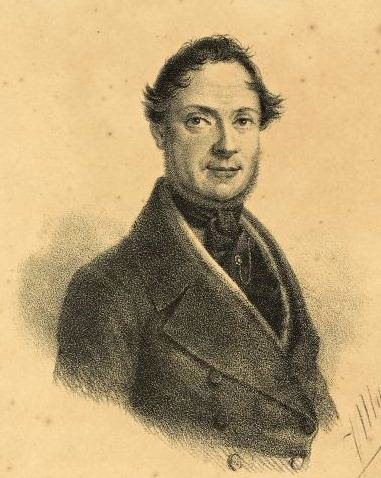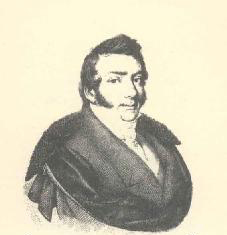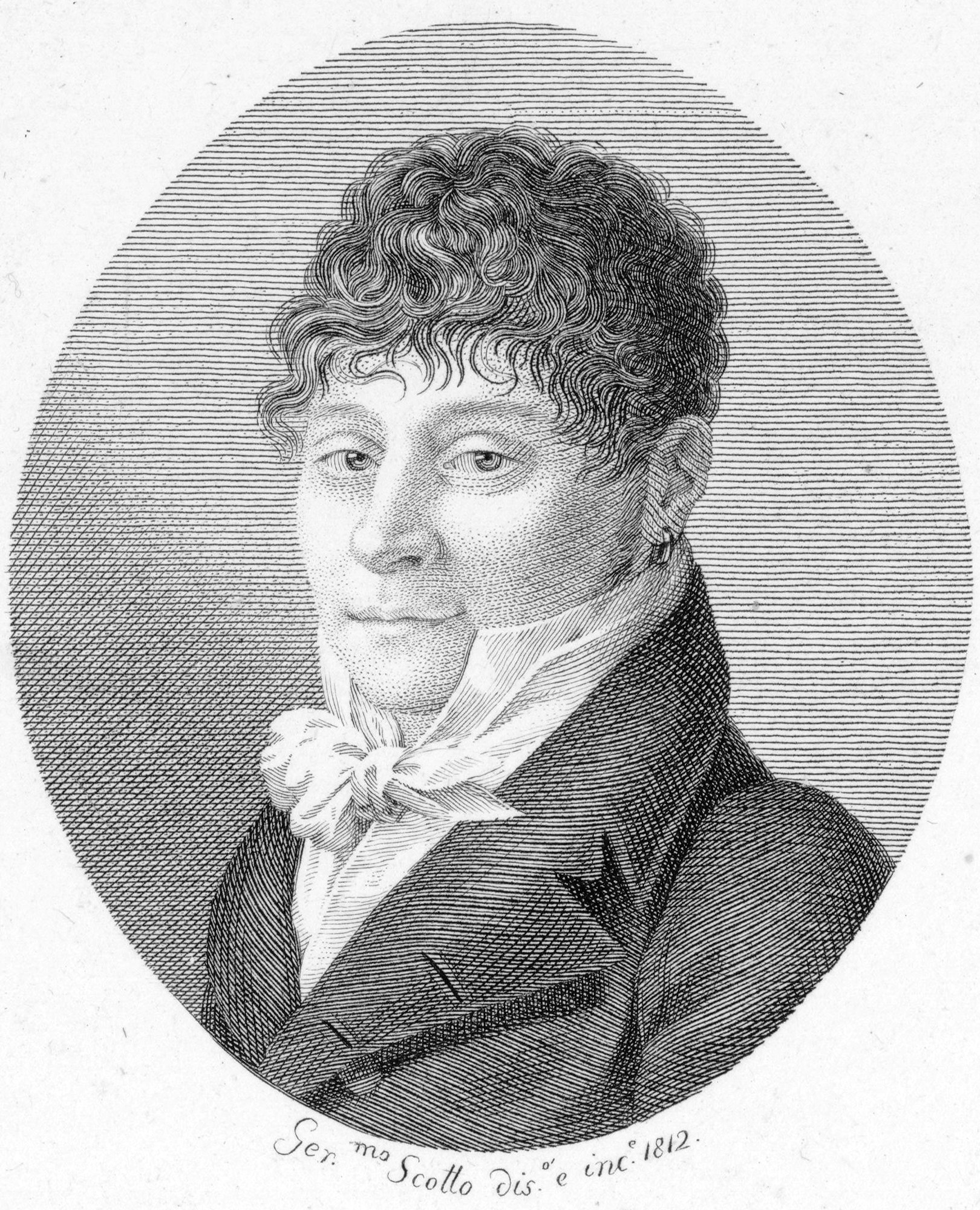|
Marietta Sacchi
Marietta Sacchi was an Italian operatic soprano who had an active career during the 1820s and 1830s. She mainly performed in comprimario and soubrette roles, and appeared at most of Italy's major opera houses and at His Majesty's Theatre in London. She notably created roles in the world premieres of operas by Vincenzo Bellini, Gaetano Donizetti, Simon Mayr, Giovanni Pacini, Luigi Ricci, and Giuseppe Verdi. She also excelled in parts from the operas of Gioachino Rossini. Career In 1823 Sacchi portrayed the role of Barsene in the world premiere of Simon Mayr's ''Demetrio'' at the Teatro Regio di Torino. In 1826 she sang in the premiere of Giovanni Pacini's ''La gelosia corretta'' at La Scala and returned to that house the following year to perform the role of Adele in the world premiere of Vincenzo Bellini's ''Il pirata''. She was committed to the Teatro Regio di Torino in 1828-1829 where she performed Zarele in Pacini's ''Gli arabi nelle Gallie'' and Selene in Saverio Mercadante's ... [...More Info...] [...Related Items...] OR: [Wikipedia] [Google] [Baidu] |
Opera
Opera is a form of theatre in which music is a fundamental component and dramatic roles are taken by singers. Such a "work" (the literal translation of the Italian word "opera") is typically a collaboration between a composer and a librettist and incorporates a number of the performing arts, such as acting, scenery, costume, and sometimes dance or ballet. The performance is typically given in an opera house, accompanied by an orchestra or smaller musical ensemble, which since the early 19th century has been led by a conductor. Although musical theatre is closely related to opera, the two are considered to be distinct from one another. Opera is a key part of the Western classical music tradition. Originally understood as an entirely sung piece, in contrast to a play with songs, opera has come to include numerous genres, including some that include spoken dialogue such as '' Singspiel'' and '' Opéra comique''. In traditional number opera, singers employ two styles of ... [...More Info...] [...Related Items...] OR: [Wikipedia] [Google] [Baidu] |
Saverio Mercadante
Giuseppe Saverio Raffaele Mercadante (baptised 17 September 179517 December 1870) was an Italian composer, particularly of operas. While Mercadante may not have retained the international celebrity of Gaetano Donizetti or Gioachino Rossini beyond his own lifetime, he composed as prolific a number of works as either; and his development of operatic structures, melodic styles and orchestration contributed significantly to the foundations upon which Giuseppe Verdi built his dramatic technique. Biography Early years Mercadante was born illegitimate in Altamura, near Bari in Apulia; his precise date of birth has not been recorded, but he was baptised on 17 September 1795. Mercadante studied flute, violin and composition at the conservatory in Naples, and organized concerts among his compatriots.Michael Rose, "Mercadante: Flute Concertos", booklet accompanying the 2004 RCA CD recording with James Galway and I Solisti Veneti under Claudio Scimone. The opera composer Gioachino Rossini sa ... [...More Info...] [...Related Items...] OR: [Wikipedia] [Google] [Baidu] |
Otello (Rossini)
''Otello'' is an opera in three acts by Gioachino Rossini to an Italian libretto by after William Shakespeare's play '' Othello, or The Moor of Venice''; it was premiered in Naples, Teatro del Fondo, 4 December 1816. The plot of the libretto differs greatly from Shakespeare's play in that it takes place wholly in Venice, not mainly on Cyprus, and the dramatic conflict develops in a different manner. The role of Iago is much less diabolical than Shakespeare's play or Verdi's 1887 opera ''Otello'', which was also based on it. Shakespeare derived his play from the story ''Un Capitano Moro'' ("A Moorish Captain") by Cinthio, a disciple of Boccaccio, first published in 1565. In further contrast, the role of Roderigo, a sub-plot in Shakespeare and Verdi, is very prominent in Rossini's version—some of the most difficult and brilliant music being assigned to the character Rodrigo. The roles of Otello, Iago, and Rodrigo are all composed for the tenor voice. Rossini's ''Otello'' is an ... [...More Info...] [...Related Items...] OR: [Wikipedia] [Google] [Baidu] |
Giulietta E Romeo (Vaccai)
''Giulietta e Romeo'' (''Juliet and Romeo'') is an opera in two acts by the Italian composer Nicola Vaccai. The libretto, by Felice Romani, is based on the tragedy of the same name by Luigi Scevola and, ultimately, on the 1530 novella of the same name by Luigi Da Porto. It was first performed at the Teatro alla Canobbiana, Milan, on 31 October 1825. It was Vaccai's last major success, although he wrote another nine operas,Loewenthal 1978, columns 697–698. and is rarely performed in its full version today. The opera was also first performed in Barcelona on 26 May 1827, Paris on 11 September 1827, Lisbon in the autumn of 1828, London on 10 April 1832, and Mexico in July 1841. It was first performed in Graz (in a German translation by I. C. Kollmann) on 12 October 1833 and Budapest (also in Kollmann's translation) on 31 July 1845. On 27 October 1832, during a performance of Bellini's ''I Capuleti e i Montecchi'' in Bologna, the next to last scene of Vaccai's opera was subst ... [...More Info...] [...Related Items...] OR: [Wikipedia] [Google] [Baidu] |
Nicola Vaccai
Nicola Vaccai (15 March 1790 – 5 or 6 August 1848) was an Italian composer, particularly of operas, and a singing teacher. Life and career as a composer Born at Tolentino, he grew up in Pesaro, and studied music there until his parents sent him to Rome to study law. Having no intention of becoming a lawyer, he took voice lessons and eventually studied counterpoint with Giuseppe Jannaconi, an important Roman composer. When Vaccai turned twenty one, he went to Naples and became a disciple of Paisiello, whose ''Barber of Seville'' was considered a comic masterpiece until Rossini's ''Barber'' swept it from the stage 35 years later.J.G. Paton, 'Introduction', in Nicola Vaccai, ''Practical Method of Italian Singing'' ed. J.G. Paton (G. Schirmer, 1975), pp. iii-iv. Vaccai launched his career in Venice, initially earning his living by writing ballets and teaching voice. He had his first operatic success with ''I solitari di Scozia'' in Naples in 1815. In Parma he was commissioned to ... [...More Info...] [...Related Items...] OR: [Wikipedia] [Google] [Baidu] |
Teatro Comunale Di Bologna
The Teatro Comunale di Bologna is an opera house in Bologna, Italy. Typically, it presents eight operas with six performances during its November to April season. While there had been various theatres presenting opera in Bologna since the early 17th century, they had either fallen into disuse or burnt down. However, from the early 18th century, the ''Teatro Marsigli-Rossi'' had been presenting operatic works by popular composers of the day including Vivaldi, Gluck, and Niccolò Piccinni. The ''Teatro Malvezzi'', built in 1651, burned down in February 1745 and this event prompted the construction of a new public theatre, the ''Nuovo Teatro Pubblico'', as the Teatro Comunale was first called when it opened on 14 May 1763. Design and inauguration Despite opposition from other competitors, the architect Antonio Galli Bibiena won the theatre design contract. The theatre's inaugural performance was Gluck's ''Il trionfo di Clelia'', an opera which Gluck had composed for the occasion. ... [...More Info...] [...Related Items...] OR: [Wikipedia] [Google] [Baidu] |
Pietro Generali
Pietro Generali (born Mercandetti Generali; 23 October 1773 – 3 November 1832) was an Italian composer primarily of operas and vocal music. Generali was born in Masserano. He studied counterpoint with Giovanni Masi in Rome and spent a few months at the Conservatoire in Naples. After graduation in Rome Generali began composing sacred music. Having produced his first opera in 1800, his first success came with ''Pamela nubile'' (Venice, 1804), followed by other farsa, such as ''Adelina'' in 1810.Lanza A. Pietro Generali. In: ''The New Grove Dictionary of Opera.'' Macmillan, London and New York, 1997. When Rossini began his rise to prominence, Generali moved first to Barcelona, directing the opera company of the Teatre de la Santa Creu (named later the Teatre Principal) and from 1820 conducted and taught in Naples. In his last years, disappointed with the reception of his works, he held the position of maestro de capella at Novara Cathedral. He died, aged 59, in Novara Nova ... [...More Info...] [...Related Items...] OR: [Wikipedia] [Google] [Baidu] |
Bergamo
Bergamo (; lmo, Bèrghem ; from the proto- Germanic elements *''berg +*heim'', the "mountain home") is a city in the alpine Lombardy region of northern Italy, approximately northeast of Milan, and about from Switzerland, the alpine lakes Como and Iseo and 70 km (43 mi) from Garda and Maggiore. The Bergamo Alps (''Alpi Orobie'') begin immediately north of the city. With a population of around 120,000, Bergamo is the fourth-largest city in Lombardy. Bergamo is the seat of the Province of Bergamo, which counts over 1,103,000 residents (2020). The metropolitan area of Bergamo extends beyond the administrative city limits, spanning over a densely urbanized area with slightly less than 500,000 inhabitants. The Bergamo metropolitan area is itself part of the broader Milan metropolitan area, home to over 8 million people. The city of Bergamo is composed of an old walled core, known as ''Città Alta'' ("Upper Town"), nestled within a system of hills, and the modern expan ... [...More Info...] [...Related Items...] OR: [Wikipedia] [Google] [Baidu] |
Teatro Riccardi
The Teatro Donizetti is an opera house in Bergamo, Italy. Built in the 1780s using a design by architect Giovanni Francesco Lucchini, the theatre was originally referred to as either the Teatro Nuovo or Teatro di Fiera. The first opera to be mounted at the theatre, Giuseppe Sarti's '' Medonte, re di Epiro'', was in 1784 while the opera house was still under construction. The official opening of the house, under the name the Teatro Riccardi, did not occur until 24 August 1791 with a production of Pietro Metastasio's ''Didone abbandonata'' set to music by multiple composers, including Ferdinando Bertoni, Giacomo Rampini, Johann Gottlieb Naumann, Giuseppe Gazzaniga, and Giovanni Paisiello. In 1797 the original theatre was destroyed by a fire, possibly by arson. Lucchini was contracted again to design a new structure to replace the old one and the new house opened on 30 June 1800. The structure uses a horseshoe shape with three tiers of boxes and two galleries. In 1897 the name of th ... [...More Info...] [...Related Items...] OR: [Wikipedia] [Google] [Baidu] |
Mosè In Egitto
''Mosè in Egitto'' (; "''Moses in Egypt''") is a three-act opera written by Gioachino Rossini to an Italian libretto by Andrea Leone Tottola, which was based on a 1760 play by Francesco Ringhieri, ''L'Osiride''. It premièred on 5 March 1818 at the recently reconstructed Teatro San Carlo in Naples, Italy. In 1827 Rossini revised and greatly enlarged the work to a four-act French libretto: ''Moïse et Pharaon, ou Le passage de la Mer Rouge'' (; "''Moses and Pharaoh, or The Crossing of the Red Sea''"). This was written by Luigi Balocchi and Victor-Joseph Étienne de Jouy. The première took place in the Salle Le Peletier of the Paris Opera on 26 March that year. Riccardo Muti and many scholars consider ''Moïse et Pharaon'', along with ''Guillaume Tell'', to be among Rossini's greatest achievements: :I prefer it because Rossini himself preferred it. Don't get me wrong. ''Mosè in Egitto'' is a wonderful opera, but it remains very much a mere sketch for ''Moïse et Pharaon''. An ... [...More Info...] [...Related Items...] OR: [Wikipedia] [Google] [Baidu] |
Zaira (opera)
''Zaira'' is a ''tragedia lirica'', or tragic opera in two acts by Vincenzo Bellini set to a libretto by Felice Romani which was based on Voltaire's 1732 play, ''Zaïre''. The story takes place in the time of the Crusades and the opera's plot involves the heroine, Zaira, struggling between her Christian faith and her love for Orosmane, the Muslim Sultan of Jerusalem. It was Bellini's fifth opera, following quickly after his February 1829 composition and premiere of ''La straniera'' at La Scala. ''Zaira'' received its first performance at the "Nuovo Teatro Ducale" in Parma (now the Teatro Regio di Parma) on 16 May 1829.Kimbell, in Holden, p. 49 Although it had been expressly written for the theatre's inauguration, it was a failure at its premiere. Composition history At around the time that Bellini was in discussions with impresario Domenico Barbaja about a second opera for La Scala to follow ''La straniera'', the composer reported to his friend Francesco Florimo in Naples th ... [...More Info...] [...Related Items...] OR: [Wikipedia] [Google] [Baidu] |
The Barber Of Seville
''The Barber of Seville, or The Useless Precaution'' ( it, Il barbiere di Siviglia, ossia L'inutile precauzione ) is an ''opera buffa'' in two acts composed by Gioachino Rossini with an Italian libretto by Cesare Sterbini. The libretto was based on Pierre Beaumarchais's French comedy ''The Barber of Seville'' (1775). The première of Rossini's opera (under the title ''Almaviva, o sia L'inutile precauzione'') took place on 20 February 1816 at the Teatro Argentina, Rome, with designs by Angelo Toselli. Rossini's ''Barber of Seville'' has proven to be one of the greatest masterpieces of comedy within music, and has been described as the opera buffa of all "opere buffe". After two hundred years, it remains a popular work. Composition history Rossini's opera recounts the events of the first of the three plays by French playwright Pierre Beaumarchais that revolve around the clever and enterprising character named Figaro, the barber of the title. Mozart's opera ''The Marriage of Fi ... [...More Info...] [...Related Items...] OR: [Wikipedia] [Google] [Baidu] |


_par_F._Bouchot.jpg)


_3.jpg)



%2C_by_Anonymous.jpg)